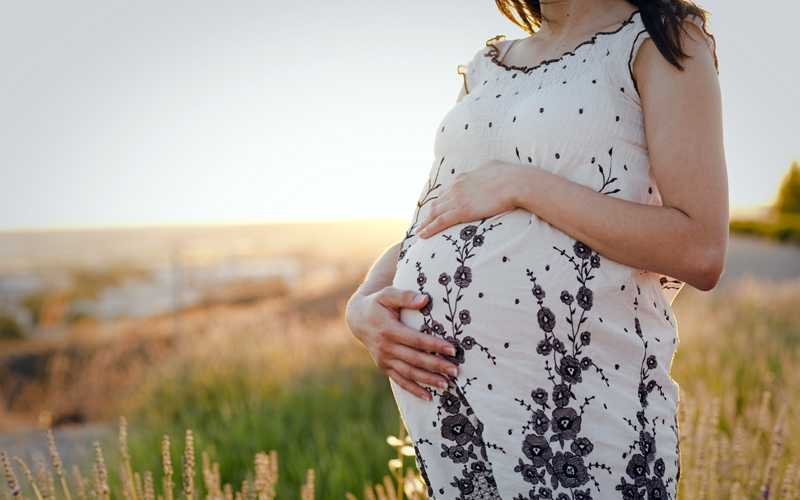
by guest blogger Deirdre Imus, author and environmental health advocate
Pregnant women are advised to do—and not do—many things over the course of nine months. Whether the advice is from a physician, a friend, or a perfect stranger, there’s no shortage of opinions on eating fish, taking supplements, drinking caffeine, exercising, or preserving the placenta, and which cheeses are safe, which sleep positions are best, where to deliver, how to deliver, and much, much more.
There is, however, a shortage of information for pregnant women in one critical area: avoiding environmental toxins.
A recent survey of more than 2,500 obstetricians across the country conducted by researchers at the University of California–San Francisco School of Medicine found that doctors face barriers when trying to counsel pregnant women about environmental hazards. Among other obstacles, doctors reported a lack of medical education and training in this area, along with a fear that cautioning pregnant women about certain toxic exposures might cause anxiety in their patients.
What’s more, the survey’s lead researcher told Reuters Health that even warning patients of such risks is basically pointless because it could “unleash a barrage of new questions” that doctors won’t be able to confidently answer.
The results of this survey echo the frustrations many of us in the environmental health sector experience on a daily basis. Without meaningful studies on the negative health effects of the chemicals in our air, water, food, personal care products, and more, the medical community is reluctant to warn patients to change certain lifestyle behaviors for fear of the havoc it may wreak.
But the role of the environment in determining the health of not only a fetus, but also of us all, can’t be overstated. And we do have proof of certain negative consequences of toxic exposures, which is why pregnant women are advised not to eat certain species of fish that are high in mercury and other chemicals. It’s why a recent study showing a link between pesticide exposure in pregnancy and increased risk of autism shouldn’t be ignored. It’s why all of us, pregnant or not, would be wise to avoid toxic chemicals wherever possible, whenever possible.
A supposed lack of reliable research is only part of the problem. The real shame is that chemicals are ubiquitous in our environment. Even if a pregnant woman eats only organic produce, washes her hair with a natural shampoo, cleans with white vinegar instead of chemical solutions, and drinks fresh, filtered water, she still comes into contact with hazardous toxins on a daily basis: Her air is polluted, her couch might be stuffed with chemical-based fire retardants, and the hand soap in her office bathroom could be full of triclosan. None of us can live inside a bubble, and pregnant women are no exception.
In the survey, doctors claimed that a lack of evidence-based research prevented them from warning pregnant women about chemical exposures. But why not err on the side of caution, on the side of health, on the side of logic? We lose so little by avoiding such chemicals, whereas so much stands to be gained.
For more pregnancy and environmental health info, visit http://prhe.ucsf.edu/prhe.
Note: Information provided herein is not intended to treat or diagnose any health condition. As always, consult your healthcare provider with any questions or health concerns.
 Deirdre Imus, founder of the site devoted to environmental health, dienviro.org, is president and founder of The Deirdre Imus Environmental Health Center at Hackensack University Medical Center and cofounder/codirector of the Imus Cattle Ranch for Kids with Cancer. She is a New York Times best-selling author and a frequent contributor to FoxNewsHealth.com and Fox Business Channel.
Deirdre Imus, founder of the site devoted to environmental health, dienviro.org, is president and founder of The Deirdre Imus Environmental Health Center at Hackensack University Medical Center and cofounder/codirector of the Imus Cattle Ranch for Kids with Cancer. She is a New York Times best-selling author and a frequent contributor to FoxNewsHealth.com and Fox Business Channel.
Adapted from a previously published post.




It is very encouraging to me that you are willing to take on this subject. When doctors won’t take on the chemical companies, we know we may be losing the battle. Maybe the real reason they won’t tell expectant mothers about the dangers in the environment is because they are afraid of being ‘sued’ by some big chemical company who is afraid of losing a few dollars by people not buying their poisons. Why not go ahead and tell them of the possible danger and if the mothers ask more questions, it isn’t any sin to tell the truth and say that no one is doing any reseach or telling us the results of any reseach done, but we do know chemicals are dangerous, so take whatever precautions you can. Most women strong enough to carry a child are strong enough to hear the truth and not go off the deep end! Thank you, Deirdre, for having more courage than our doctors!! All the unborn children thank you, too!